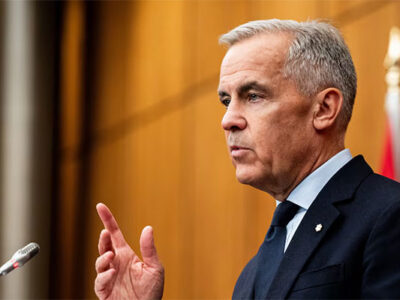Minnesota Power | News Release —
Minnesota Power has completed commissioning on the latest phase of its Bison Wind Energy Center. The 205-megawatt expansion makes it the largest wind farm in North Dakota and ranks Minnesota Power as one of America’s top-10 wind power-owning electric utilities.
All 64 turbines within the 35-square-mile boundaries of Bison 4 are now generating renewable energy, which is delivered to the company’s customers via a 465-mile direct current transmission line linking Center, N.D., and Duluth, Minn.
In total, the nearly 500 megawatts produced by Bison’s 165 turbines rank it as North Dakota’s largest wind farm in terms of electric generating capacity.
“We’ve made significant strides over the last eight years to bring our energy generation into better balance,” said ALLETE Chairman, President and CEO Al Hodnik. “Development of renewable energy from wind and water is rapidly transforming our nation’s energy landscape and with the addition of nearly 500 megawatts of wind from the Bison development on our system, we are providing cleaner energy while maintaining the affordability and reliability of electric power our customers in northeastern Minnesota expect.”
Bison 4 is part of the company’s strategic EnergyForward plan for diversifying its energy supply while cutting carbon, adding renewables and reducing emissions at power plants.
Hodnik credited Minnesota Power Chief Operating Officer Brad Oachs and his team for completing the entire Bison project in a timely and cost-effective manner.
“With this substantial addition of wind to our portfolio, we are meeting Minnesota’s renewable standard of 25 percent renewable energy by 2025, a decade early,” Oachs said. “That’s a tremendous accomplishment by our employees. It reflects our commitment to cleaner energy and the execution of our EnergyForward plan to a more diversified energy mix of one-third renewable, one-third coal and one-third natural gas.”
On September 25, 2013, the North Dakota Public Service approved the Bison 4 site permit allowing construction to commence. The Minnesota Public Utilities Commission approved on Jan. 17, 2014, Minnesota Power’s petition seeking cost recovery from customers for Bison 4 investments. The total project investment for Bison 4 is estimated at $345 million.
Bison 4 uses larger, more powerful Siemens wind turbine generators than those installed in earlier phases of the project. Because the generators are more powerful, it takes only 64 turbines to produce about the same amount of cost effective electricity produced by the 70 turbines installed for Bison 2 and 3.
Wind tower sections in Bison 4 were manufactured in Manitowoc, Wis., using steel produced from Minnesota taconite. With a portion of the generator units now manufactured at a Siemens plant in Hutchinson, Kan., and the turbine blades fabricated in Fort Madison, Iowa, Bison 4 incorporates more American-made components than the earlier Bison phases.
Minnesota Power was ranked eighth among all U.S. electric utilities for ownership of wind power capacity, according to statistics from the American Wind Energy Association (AWEA) compiled at the end of 2013. With the additional 205-MW capacity of Bison 4, the Duluth-based utility could soon be ranked among the nation’s top five wind power owners.
Construction of Bison 4, which began in the fall of 2013, included about 14 miles of new roads, upgrades to about 11 miles of existing roads and installation of about 55 miles of collector cable in addition to the turbine erection that began early last summer. A new electric substation was built to serve the western side of Bison 4 and an existing substation was expanded. The project also includes a new meteorological tower and 11 miles of new 230-kilovolt transmission line.
Minnesota Power’s first wind farm, the 25-MW Taconite Ridge, in Mountain Iron, Minn., was constructed on the property of its largest customer, U.S. Steel, going online in June of 2008. The first three phases of Bison were built in 2010-12. Minnesota Power also buys all the output of a 98-megawatt wind farm adjacent to the Bison site in Oliver County, N.D., which was built in 2006-07 by NextEra Energy.














Comments